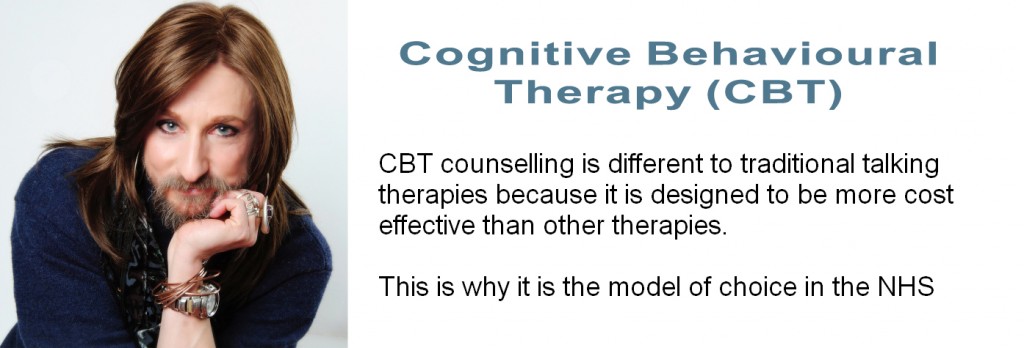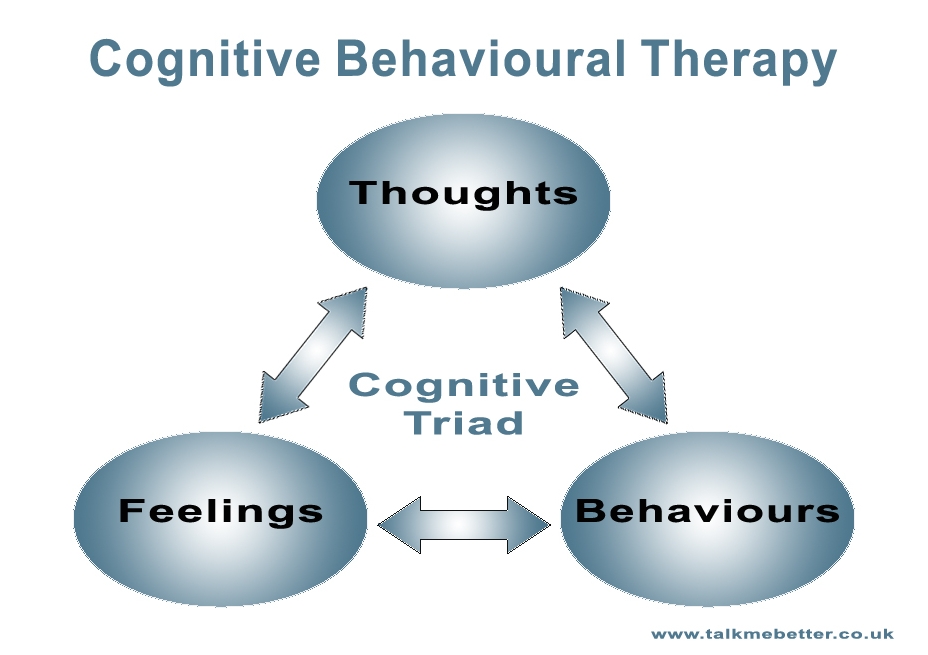What is CBT Counselling?
CBT Counselling is a cost effective, time efficient and modern ‘talking therapy’. Counselling and psychotherapy both refer to what we know as the 'talking cure'. Counselling tends to refer to short term work focussed on an immediate issue such as divorce or a change of work circumstances. Psychotherapy is a term more often associated with the longer term work – changing the 'I've always…' or 'why does this keep happening to me…' patterns which shape our lives. In all other ways they are to all intent and purpose one and the same. I tend to use the term 'therapy' to describe both.
What happens in a CBT counselling session?
You as the client will describe what you see as the problem and how it affects you. The job of the therapist is to listen and understand and to explore with you the aspects of the problem that are not immediately obvious. The whole basis of the relationship is that the therapist, being outside the problem, will be endeavouring to understand you from an unbiased viewpoint. CBT counselling is more pro-active and more invested in helping you achieve insight and change than traditional models of therapy. CBT (cognitive behavioural therapy) helps you identify how thoughts and feelings interact.
But how can talking fix anything?
Part of what makes us human is our need for a sense of 'connectedness' with others – we are a social creature and it is in the quality of our connections and relationships with others that determines to a greater extent our emotional well-being. Being truly heard and understood is a powerful experience; developing the skill to hear ourselves more fully, another significant aspect of what makes for effective and therapeutic growth.
Therapy is about a relationship built on trust and respect. CBT counselling offers you a place where it is safe to explore how you really feel or think about things without being mocked or ridiculed, where things disclosed in confidence stay that way.
How frequent are CBT counselling sessions?
CBT counselling sessions are normally spaced weekly but my diary can accommodate your needs so session will be spaced to suit you. Weekly to perhaps ten days apart seems generally to be the most effective frequency as it gives time for the understandings and insights from each session to sink in and make sense whilst keeping up the momentum of change.
How long does CBT Counselling take?
Most counsellors will avoid this question for good reason. There are so many variables, however, a few rules of thumb may help so long as they are viewed as such. Most Employee Assistant programs work to a 6 session model. In my experience, if the issue relates to something recent or is a new occurrence then some positive change and improvement is usually possible in that time frame – indeed I would expect to see at least some change within that time even with longer term clients.
If the issue is lifelong – a persistent feeling of being worthless for example then it is going to take longer – not least because the longer you have spent telling yourself (or being told by those around you) that you are useless, the longer it takes to undo that programming. Working in blocks of say 10 weeks you might expect perhaps a year of work. The best way is to try a bit – get some change achieved and decide if you want to build on that initial success, working in stages.


